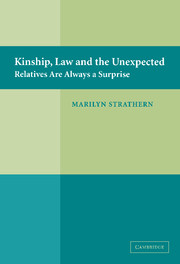People build bridges in many ways, and not least over time, spanning the different epochs that define their lives. For social anthropologists, this process is far from self-evident. Diverse ways of thinking about transitions summon anthropology’s traditional mode of making bridges, cross-cultural comparison. This account thus interweaves materials from Europe and Melanesia. Stimulated by an ethnography of an East German town being precipitated into a new world, it focuses on abrupt transitions and their recurrence. What is happening when a radical break with one kind of past is also recalled as looking forward to a moment when another kind of past might finally come into its own? Pursuing such paradoxes, the article turns to today’s Papua New Guinea where many have seen colonialism – like socialism – come and go in a lifetime. People’s aspirations for the future, raising questions about the abruptness of breaks and the crisis that new times create, throw out challenges as to how to envisage worlds old and new.
